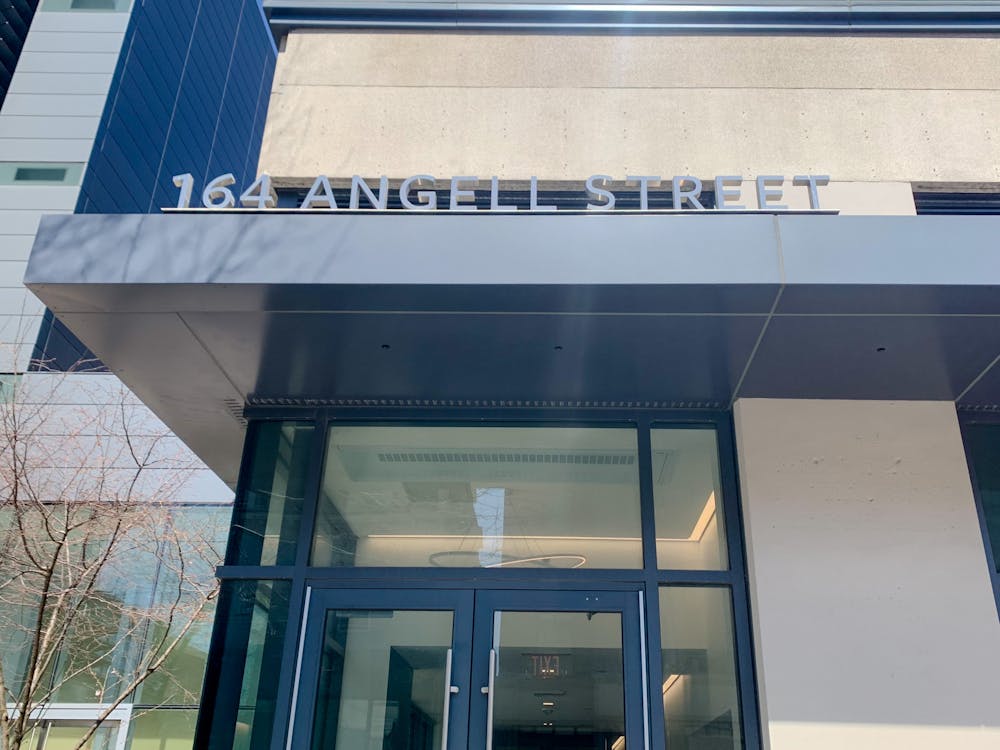According to a March 15 report from Brown’s Annenberg Institute for School Reform, the Providence Public School District continues to face growing teacher attrition — a challenge since the onset of the COVID-19 pandemic. The report, part of the Annenberg Institute’s ongoing partnership with PPSD and the Rhode Island Department of Education, also detailed the district’s struggles to attract new applicants and increase diversity among educators.
“It’s way more nuanced than I think we were expecting” when research began last fall, said Kate Donohue, senior project manager at the Annenberg Institute and an author of the report. Donohue added that it is difficult to distinguish which challenges covered by the report can be attributed to the pandemic and which are due to the 2019 state takeover of the district.
“In our brief, we report on the three-year (teacher) retention rates,” Donohue said. “It’s lower than the rest of the state, but when you look at other urban districts, there's more and more data coming out … which are on par (with) or higher than PPSD.”
But “that doesn't mean it's an issue that they shouldn't care about,” she added.
“Nothing in the Annenberg report was remarkable,” wrote Maribeth Calabro, president of the Providence Teachers Union, in an email to The Herald. “I think we would be remiss if we failed to discuss the impact (that) the teachers leaving (and) vacancies are having on teaching and learning.”
According to Donohue, around 150 teachers left the district last year.
“If we use an example of 150 classroom teachers leaving, and each teacher has 22 students,” Calabro wrote, “that means at some point, 3,300 students may be without a certified teacher in front of them.”
Calabro emphasized the effect of low teacher retention on educators, writing that teachers who have to cover these vacancies during planning periods must plan their instruction at home instead.
Additionally, “at the elementary level, the classrooms are ‘split’” due to the shortages, “with small groups of children being placed in other classrooms for the day, which can also disrupt the flow and consistency of the receiving classroom,” Calabro wrote. Some students who are moved may even be from a different grade, she added.
Calabro recognized that a concerted effort has occurred over the last two years to attract teachers to PPSD. But this effort must be coupled with incentivizing teachers with “knowledge, experience and a wealth of professional development” to stay in Providence, she added.
“Based on the reasons we have been given by teachers who have left for other districts, low morale, disrespect, the takeover and having to get a (multilingual learners) certification to keep positions are all factors that have contributed,” Calabro wrote.
Responding to claims that difficulties stemming from the RIDE takeover are fueling high turnover, Victor Morente, communications director at RIDE, wrote in an email to The Herald that there is a teacher workforce challenge nationwide. Morente cited a 2022 report from the American Federation of Teachers that noted struggles with teacher retention before the pandemic. “The pandemic only made things worse,” the report read.
On May 7 and 8, RIDE will hold a statewide educator job fair, Morente added. “At this point, over 25 districts have signed up to participate because they too are facing workforce challenges like Providence.”
The Annenberg report also found that PPSD has not made the gains it hoped to in diversifying its teacher workforce: Currently, the district is diversifying at a rate of “less than 0.5 percentage points a year” — 21.8% of the district’s educators are teachers of color.
“There is such a gap between what the student body looks like and what the teacher workforce looks like,” Donohue said. According to statistics from PPSD, over 90% of the district’s students are students of color.
She also noted that it is difficult to increase teacher diversity, although PPSD has made some improvements. Pre-pandemic, around 15% of new teacher hires were people of color, according to Donohue. Now, that number is around 30%.
“40 to 50% of all new teachers have to be teachers of color” for PPSD to hit its targets of a two percentage point increase in educators of color annually, Donohue added. “Their applicant pool just doesn’t look like that.”
“To alleviate workforce challenges, PPSD has already begun its hiring process earlier than in years past, launched a robust recruitment campaign and is offering a wide array of incentives to attract and retain top talent with particular focus on high-need areas,” wrote Suzanne Ouellette, deputy director of external affairs at PPSD, in an email to The Herald.
According to Ouellette, PPSD has implemented hiring and retention incentives for teachers and non-teaching staff alike by expanding its referral program to engage district staff in the recruitment process and establishing the Educators of Color Loan Forgiveness program, which helps teachers of color pay back student loans. “Through these efforts, PPSD has greatly increased the number of new hires compared to prior to the intervention, including more new educators of color,” Ouellette wrote.
“The more we dig into (staffing), the more questions we have,” Donohue said. “That really just speaks to how difficult and complex it is to staff a district with effective teachers.”





